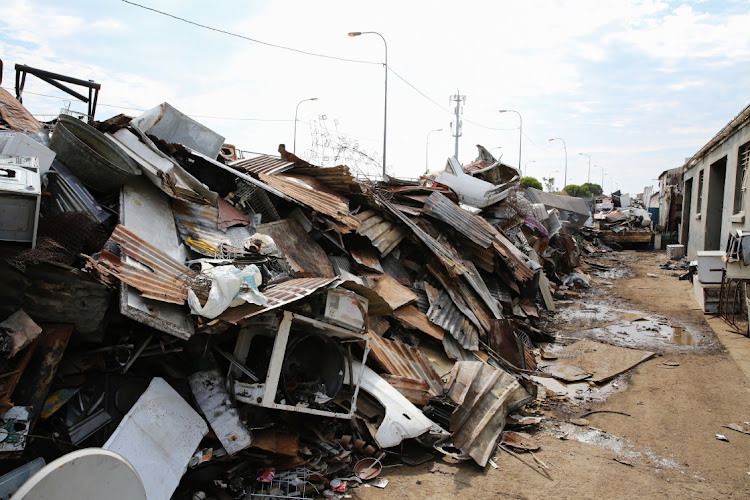Informal scrap metal collectors face uncertain future as proposed SA ban looms

More than 300 000 people, who eke out a living from collecting and selling scrap metal face an uncertain future with the government's proposal to curb the sale of scrap as it attempts to prevent the wanton destruction of infrastructure.
However, the Metal Recyclers Association (MRA) said it was unclear how banning the exports of all scrap metal would stop the theft of copper cables.
However, it agreed that the government’s ban for the payment for scrap metal in cash would disincentivise those engaged in illicit activities.
This follows a move by Department of Trade, Industry, and Competition (dtic) Minister Ebrahim Patel who proposed a temporary six-month export prohibition on ferrous and non-ferrous waste and scrap metal, including copper cable, and a permit system for the export of specified semi-processed metal products earlier this month.
Patel said the total cost of copper theft at the end of April stood at about R46.5 billion. The government envisages that it may take 24 months to implement this measure which should be fast-tracked and implemented sooner rather than later.
However, it said virtually no copper scrap has been exported for a number of years. According to SA Revenue Service (Sars) customs data, annual volume reduced by 93 percent in the 12 months to December 2021.
According to the MRA, the market for scrap was titled as most scrap generated came from big industries such as mining, manufacturing and construction and there were certain exotic metals - such as tungsten, titanium and nickel variants - did not have any consumption market in SA.
About 3.5 million tons of bona fide scrap metals was collected in SA every year, most of which originated from the mining, manufacturing and construction sectors. At least 90 percent of this quantity comprised iron and steel scrap, with a domestic value of R2.50 – R4.00 per kilogram and approximately 3 percent of this volume is copper scrap, with an average unit price of around R100 per kg, it said.
This all needed to be collected, transported, processed, delivered and financed before it was delivered to steel mills, non-ferrous mills and foundries. Most of the scrap metal was used within SA as a raw material in the manufacture of new metal product and only the surplus was exported.
"The government has issued a notice that intends to ban the export of scrap metals for a period of at least six months. This will mean that the surpluses will not be exported, which will create an over-supply of most scrap metals in the country, with the result that prices will fall further. They are already relatively low as a consequence of existing government trade policy,’ it said.
The organisation said the effect of this would also result in factories, which produced scrap as off-cuts, receiving less for their scrap, even though they were paying the full price for the steel sheets and other metals they used in their manufacturing.
“This will not only threaten the sustainability of many operators within the recycling sector, but will also substantially reduce revenue collections by those generating the scrap metal.”
The MRA explained that several hundred thousand people earned their living from this work, including informal sector scrap collectors, small scrap metal dealers and large recycler processing yards.
“The dtic estimates that 300 000 informal sector people sustain their livelihood from recyclable sales and for obvious reasons, scrap metal is the most popular of these products,” it said.
It also meant that informal collectors, if they were allowed to continue operating, would receive less money for what they collected. The MRA said the government also proposed that sellers of scrap metals would be required to register and to submit monthly reports.
However, this regulation would prohibit the regularised recycling sector from trading with the informal collectors, who invariably would not be able to comply with the registration requirements and, therefore, not be allowed to continue to trade in metal scrap, which was the highest income-generating product of all recyclables.
"The magnitude of this implication is horrific and the MRA will endeavour to encourage the government to find a workable solution that does not marginalise this sector of people," it said.
The Steel and Engineering Federation of South Africa said it was still studying government's proposal, but that the proposed ban on the sale of scrap metal had an impact on the up and downstream industries, including fabricators who generated waste scrap from their production processes.
"It is important what instruments you choose to regulate the industry, this is a very big bill," Seifsa spokesperson Kufadzwa Tibangura said.
Meanwhile, the South African Iron and Steel Institute said this week that its members fully supported the ban on the export of scrap metal from SA along with the other significant measures proposed by the dtic to curb criminal activity.
